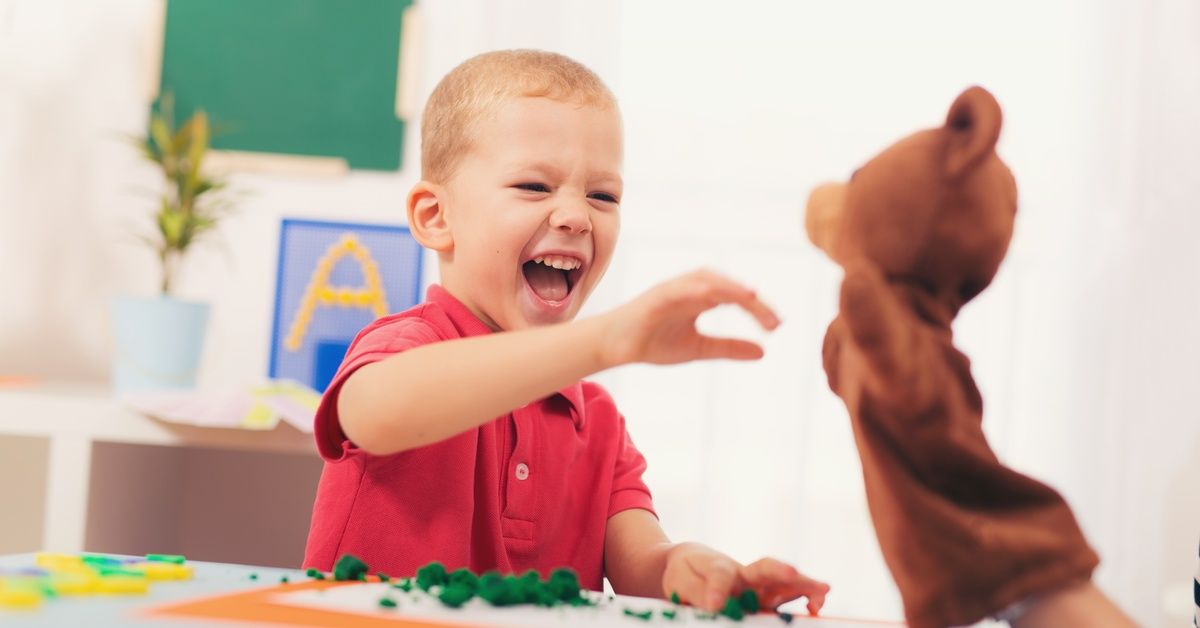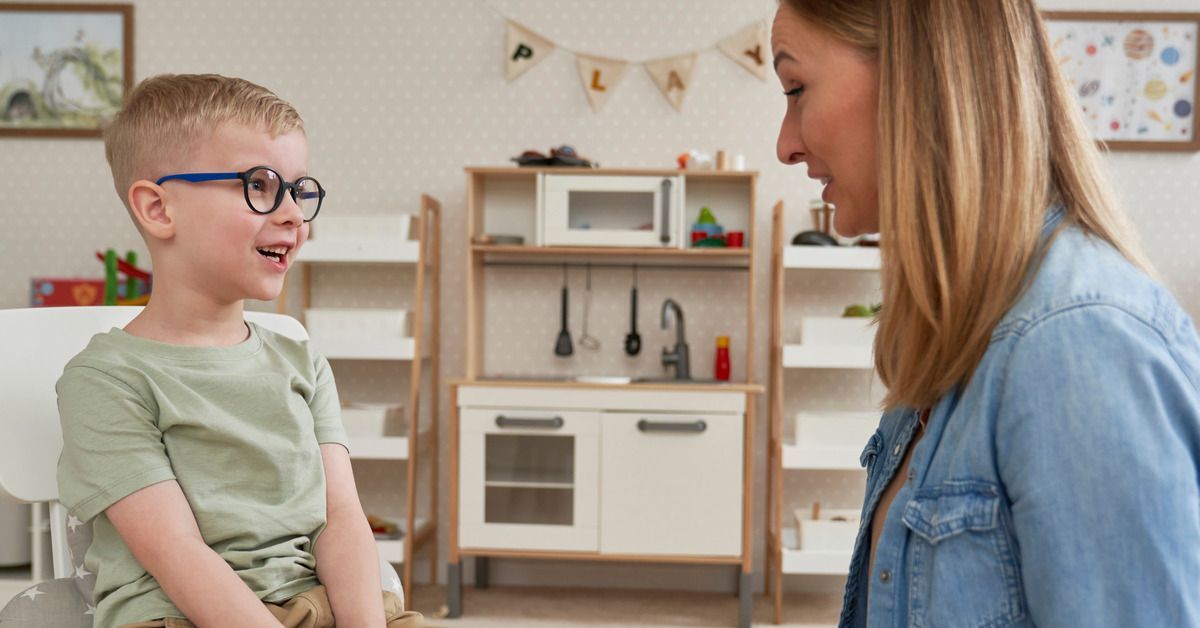Tips for Choosing Holiday Gifts for Children With Autism
The holiday season is a special time for giving, and finding the perfect gift for children with autism requires thoughtful consideration and an understanding of their unique needs and preferences. Your gift can provide joy, comfort, and developmental benefits with the right approach.
Consider sensory preferences, interests, and therapeutic benefits; you can make this holiday season delightful for every child. Here are valuable tips for choosing holiday gifts for children with autism, ensuring that each present is enjoyable and supports their growth and well-being.
Understanding Sensory Preferences
Children with autism often have unique sensory preferences. Some might love bright lights and sounds, while others prefer softer, muted environments. When choosing a gift, consider the child's sensory likes and dislikes.
Soft, tactile toys or items that provide gentle sensory feedback can be great options. Consider plush toys or soft blankets with different textures. They provide comfort and can become a favorite companion for the child.

Encouraging Creativity Through Art Supplies
Art supplies can be a wonderful gift for children with autism. They offer an outlet for creativity and self-expression. Non-toxic crayons, colored pencils, or washable markers can be perfect to fuel their artistic endeavors.
Incorporating different types of paper or canvases can also provide various textures and experiences. Additionally, consider art sets that include stencils or stamps. These can help children create with some guidance, boosting their confidence.
Fostering Learning with Educational Toys
Educational toys are a fantastic way to encourage learning in a fun and engaging manner. Puzzles, building blocks, and interactive games can stimulate a child's cognitive development and problem-solving skills.
Look for toys that match their interests, whether animals, vehicles, or numbers. Many children find joy in toys that challenge them just enough to hold their interest without causing frustration.
Promoting Social Skills with Board Games
Board games can be a valuable tool in helping children with autism develop social skills. Playing games involving taking turns, following rules, and strategizing can enhance their ability to interact and communicate.
Consider games designed to teach cooperation, patience, and teamwork—these provide entertainment and practical learning experiences. Choosing games easily adapted to the child's skill level ensures an enjoyable and inclusive experience, promoting fun and social growth.
Promoting Movement with Active Play Gifts
Active play is important for every child as it promotes physical health and coordination. For children with autism, mini trampolines, balance boards, or sensory swings can provide much-needed movement stimulation.
These gifts can also help develop gross motor skills. Always remember safety, ensuring the child can use these items confidently and securely. Encouraging regular practice will further enhance their coordination and confidence.
Cultivating Imagination with Pretend Play
Pretend play is a delightful way for children to explore different scenarios and roles. Costumes, playsets, and themed figurines allow children to immerse themselves in imaginative worlds. When selecting pretend play items, consider themes that align with the child's interests.
This can include anything from dinosaurs and space exploration to cooking and veterinarian kits. Observing your child's preferences can give you insight into their budding passions. Choosing items that encourage creativity and imagination can also enhance their playtime experience.

Offering Comfort with Cozy Clothing
Comfortable clothing can be a comforting gift. Many children with autism have specific preferences for how clothing feels on their skin. Consider gifting soft, tag-free clothing in their favorite colors or patterns. Knowing the child's preferred fabric types or styles is always helpful to avoid any discomfort.
Clothing that is easy to put on and take off can also benefit children who need more independence. Additionally, sensory-friendly clothing with flat seams should be considered to prevent irritation.
Creating Memories with Books
Books open up new worlds and can be a source of both comfort and adventure. Choose books that feature colorful illustrations and simple, engaging stories. Picture books can be especially captivating and offer a chance for shared reading experiences.
Many children enjoy interactive books with flaps to lift or textures to feel. Reading together can strengthen bonds and foster a love for literature. Exploring different genres helps children discover their unique interests.
Building Skills with STEM Toys
STEM (Science, Technology, Engineering, and Mathematics) toys are designed to encourage exploration and discovery among children. These toys can include kits for building basic robots, conducting simple science experiments, or solving math puzzles, which can be exciting options for young minds.
STEM toys can be particularly engaging for curious children who love understanding how things work. They foster a lifelong interest in learning and innovation. By playing with STEM toys, children have fun and develop essential skills that will benefit them in their educational journey and future careers.
Enhancing Daily Routines with Visual Schedules
Visual schedules can be a beneficial tool for children with autism. They offer a clear structure for daily activities, providing security and routine. Consider gifting a customizable visual schedule board.
This can help children anticipate transitions between activities, especially during the busy holiday season. By making expectations clear, such tools can reduce anxiety and meltdowns. Parents and caregivers will appreciate the positive impact on their child's daily life.
Crafting Connections with Social Games
Social games are a great way to encourage interaction and communication among children and their peers. Board games, card games, or cooperative play activities can foster social skills in a lighthearted setting. Look for games with simple rules and vibrant designs to capture their attention.
Playing together can also strengthen family bonds during the holiday season. These games teach valuable lessons in teamwork and sharing and provide a fun escape from screens and digital distractions.
Encouraging Exploration with Sensory Play Kits
Sensory play kits allow children to explore different textures, smells, and visual stimuli in a controlled and enjoyable way. These kits often include kinetic sand, water beads, or scented playdough. Such activities can encourage sensory exploration and experimentation without overwhelming the child.
These play kits are particularly appealing because they engage multiple senses and can be adapted to suit the child's specific sensory preferences. They offer relaxation and creative play possibilities.
Inspiring Musical Exploration with Instruments
Musical instruments can be excellent holiday gifts for children with autism. Instruments such as xylophones, tambourines, and small keyboards allow children to explore sounds, rhythm, and melody engagingly and enjoyably.
Music can be a powerful tool for self-expression and emotional regulation, offering children an outlet for creativity and promoting sensory integration. When selecting instruments, consider those that are easy to handle and produce harmonious sounds. This will foster both confidence and joy as the child explores the world of music.
Choosing holiday gifts for children with autism requires thoughtfulness and an understanding of their unique interests and sensory needs. By considering these factors, you can select items that bring joy and benefit the child's development.
Parent training for autism remains a valuable resource for families interested in further enhancing their support system. This holiday season, celebrate the joy of giving with heartfelt and meaningful gifts that resonate with children and their families.







